第16章
When the earl had sufficiently piqued me by his devotion to his dinner and his glances at Francesca, I began a systematic attempt to achieve his (transient) subjugation. Of course I am ardently attached to Willie Beresford and prefer him to any earl in Britain, but one's self-respect demands something in the way of food. I could see Salemina at the far end of the table radiant with success, the W.S. at her side bending ever and anon to catch the (artificial) pearls of thought that dropped from her lips. "Miss Hamilton appears simple" (I thought I heard her say); "but in reality she is as deep as the Currie Brig!" Now where did she get that allusion?
And again, when the W.S. asked her whither she was going when she left Edinburgh, "I hardly know," she replied pensively. "I am waiting for the shade of Montrose to direct me, as the Viscount Dundee said to your Duke of Gordon." The entranced Scotsman little knew that she had perfected this style of conversation by long experience with the Q.C.'s of England. Talk about my being as deep as the Currie Brig (whatever it may be); Salemina is deeper than the Atlantic Ocean! I shall take pains to inform her Writer to the Signet, after dinner, that she eats sugar on her porridge every morning; that will show him her nationality conclusively.
The earl took the greatest interest in my new ancestors, and approved thoroughly of my choice. He thinks I must have been named for Lady Penelope Belhaven, who lived in Leven Lodge, one of the country villas of the Earls of Leven, from whom he himself is descended. "Does that make us relatives?" I asked. "Relatives, most assuredly," he replied, "but not too near to destroy the charm of friendship."
He thought it a great deal nicer to select one's own forebears than to allow them all the responsibility, and said it would save a world of trouble if the method could be universally adopted. He added that he should be glad to part with a good many of his, but doubted whether I would accept them, as they were `rather a scratch lot.'
(I use his own language, which I thought delightfully easy for a belted earl.) He was charmed with the story of Francesca and the lamiter, and offered to drive me to Kildonan House, Helmsdale, on the first fine day. I told him he was quite safe in making the proposition, for we had already had the fine day, and we understood that the climate had exhausted itself and retired for the season.
The gentleman on my left, a distinguished Dean of the Thistle, gave me a few moments' discomfort by telling me that the old custom of `rounds' of toasts still prevailed at Lady Baird's on formal occasions, and that before the ladies retired every one would be called upon for appropriate `sentiments.'
"What sort of sentiments?" I inquired, quite overcome with terror.
"Oh, epigrammatic sentences expressive of moral feelings or virtues," replied my neighbour easily. "They are not quite as formal and hackneyed now as they were in the olden time, when some of the favourite toasts were `May the pleasure of the evening bear the reflections of the morning!' `May the friends of our youth be the companions of our old age!' `May the honest heart never feel distress!' `May the hand of charity wipe the eye of sorrow!'"
"I can never do it in the world!" I ejaculated. "Oh, one ought never, never to leave one's own country! A light-minded and cynical English gentleman told me that I should frequently be called upon to read hymns and recite verses of Scripture at family dinners in Edinburgh, and I hope I am always prepared to do that; but nobody warned me that I should have to evolve epigrammatic sentiments on the spur of the moment."
My confusion was so evident that the good dean relented and confessed that he was imposing upon my ignorance. He made me laugh heartily at the story of a poor dominie at Arndilly. He was called upon in his turn, at a large party, and having nothing to aid him in an exercise to which he was new save the example of his predecessors, lifted his glass after much writhing and groaning and gave, "The reflection of the moon in the cawm bosom of the lake!"
At this moment Lady Baird glanced at me, and we all rose to go into the drawing-room; but on the way from my chair to the door, whither the earl escorted me, he said gallantly, "I suppose the men in your country do not take champagne at dinner? I cannot fancy their craving it when dining beside an American woman!"
That was charming, though he did pay my country a compliment at my expense. One likes, of course, to have the type recognised as fine; at the same time his remark would have been more flattering if it had been less sweeping.
When I remember that he offered me his ancestors, asked me to drive two hundred and eighty miles, and likened me to champagne, I feel that, with my heart already occupied and my hand promised, I could hardly have accomplished more in the course of a single dinner-hour.